Ridiculous/Hilarious/Terrible/Cool (28 page)
Read Ridiculous/Hilarious/Terrible/Cool Online
Authors: Elisha Cooper

After college, he needs to make a lot of money. To pay off debt, to support his lifestyle, to fund a campaign if he runs for office. Not for representative, though. Daniel no longer wants to be a congressional representative, even one as charismatic as Barack Obama. What he really wants to be is a mayor. Running a city, like Chicago.
When Daniel met the mayor recently he told him just that, that someday he means to have his job. He has a signed photograph from that meeting:
To Daniel Patton. Best Wishes, Mayor Richard M. Daley
.
.
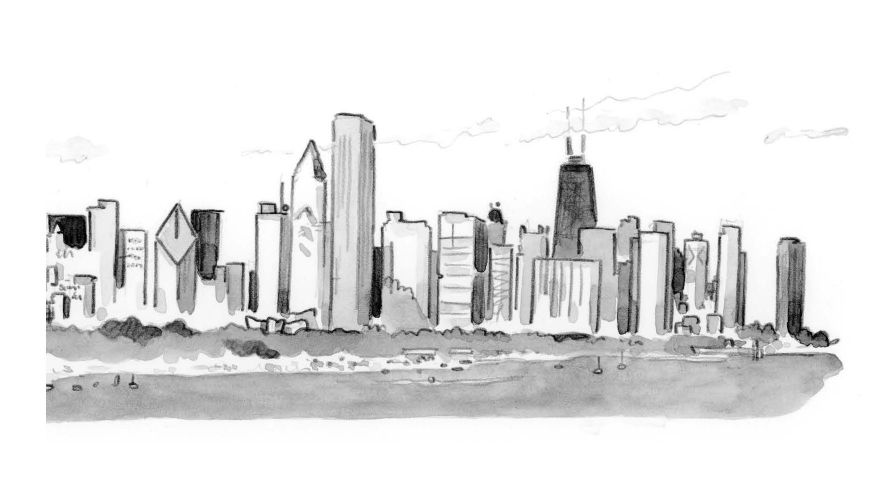
The five pleasant days of spring in Chicago have come and gone. It's summer now, oppressive and hot. A group of students sits outside the front door throwing ice at each other.
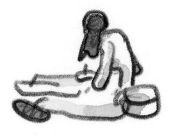
Inside school it's stuffy. White Sox signs from the fall slump off the walls in the humidity. Students lounge around the atrium signing yearbooks, flipping through the pages to see what others wrote. One girl has a stack of yearbooks next to her, assembly-line style.
“Want me to sign your yearbook?”
“No. Fuck you.”
“Heh, heh.”
“See you!”
Only underclassmen are at school, waiting to take finals. As they wait they watch the Ping-Pong, hands in pockets, heads going back and forth. The King of Ping-Pong is king again.
The underclassmen look taller than they were in the fallâ in some cases an inch or twoâbut also bigger in personality, a larger amount of confidence to fill the space of those that will soon leave.
At the front door the security
 guard reads the
guard reads the
Sun-Times,
waving kids in, barely looking up. A biology class is running a frog race. The contestants just sit there at first.

Sun-Times,
waving kids in, barely looking up. A biology class is running a frog race. The contestants just sit there at first.
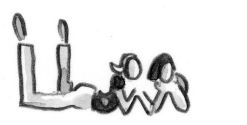
“Your frog a loser! Your frog a
loser!
” one student taunts.
loser!
” one student taunts.
Then the frogs are poked in their bottoms and start leaping. Not where they are supposed toâthe finish line near the trophy casesâbut across the linoleum toward the exit and freedom. The only ones in the high school making any effort anymore are frogs, and even they are trying to get out the door.
Emily walks through the atrium, her hair no longer in a tight ponytail but in a wild mane of curls, bouncing as if a weight had been lifted from her.
“I have a craving. It's very serious. I need nachos!” she calls out.
With that, Emily pushes through the door and strides across the field to the parking lot. She gets in her shimmery green Honda Civic (voted
Best Car
in the yearbook) and accelerates through the small streets around the high school, heading downtown. Her windows are down, and the wind whips through her hair and around the car and up to the tops of the steel buildings that rise on either side of her. When Emily reaches her destination, she double-parks, leaps out, and shuffles to the taqueria.
Best Car
in the yearbook) and accelerates through the small streets around the high school, heading downtown. Her windows are down, and the wind whips through her hair and around the car and up to the tops of the steel buildings that rise on either side of her. When Emily reaches her destination, she double-parks, leaps out, and shuffles to the taqueria.
Five minutes later and Emily is back, goal accomplished, nachos in hand. She throws the bag on the floor of the passenger seat, and speeds back through downtown. She's wearing a T-shirt from the Broadway show
Wicked
. It says
defy gravity
across the chest. After first seeing
Wicked
in the winter, Emily has seen it five more times. She thinks
Wicked
is the best show ever.
Wicked
. It says
defy gravity
across the chest. After first seeing
Wicked
in the winter, Emily has seen it five more times. She thinks
Wicked
is the best show ever.
“
So
amazing!” she cries.
So
amazing!” she cries.
Emily fell in love with the music, fell in love with the story.
Emily changes lanes, and subjects.
“My friends are annoying,” she snaps.
Some of Emily's friends were upset with her this spring because she was so caught up with her soccer team. Meanwhile, they were sitting around talking about boys and doing not much else. Emily is looking forward to meeting people in college who are more like her, more willing to talk about serious issues. She's thinking of trying out for the women's soccer team at Yale. Her Payton coach thinks she's good enough. Over the summer she'll play with a traveling team to improve her game, and her shot.
Emily parks her Honda and sips her drinkâthe cup says
Eat the World
on its sideâand starts walking across the field back to school. With schoolwork over, Emily has had time to experiment with her own writing. She started a fiction piece, and a dream journal. And, she has a new crush.
Eat the World
on its sideâand starts walking across the field back to school. With schoolwork over, Emily has had time to experiment with her own writing. She started a fiction piece, and a dream journal. And, she has a new crush.
“No one can ever know that I like him,” she says, green eyes flashing.
Emily pushes through the front door. As she heads down the halls, swinging her right shoulder, then her left, she talks about how her goals from the beginning of the year have not changed. She still wants a job in business.
She still wants money, still wants power. The thought of someday going to work in a suit makes her happy. “This is
who I am,
” she says.
who I am,
” she says.
Emily stops.
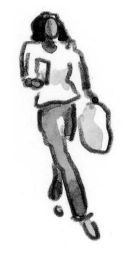
When her team lost in the state semifinals, it was hard. They lost to St. Ignatius, who lost to New Trier, who then won it all. The team didn't accomplish Emily's goal of making it to finals. Emily doesn't feel she accomplished
her
goals either, though she was still All-City, All-Conference, All-Section, and won all sorts of other awards.
her
goals either, though she was still All-City, All-Conference, All-Section, and won all sorts of other awards.
Emily feels St. Ignatius wasn't better than Payton, they were just more confident. She made dumb decisions, passing to teammates who were open but who she knew wouldn't be able to do anything with the ball once they got it. She marked the other team's best player again, taking out her own team's chances of scoring. She didn't shoot. She moved forward at the end, though by then the game was over.
As the minutes counted down, Emily felt increasingly emotional. With one minute left she called to a teammate to pass the ball back to her so she could touch it one last time before her season ended, and then she choked up and cried.
Emily doesn't say anything. She looks down the hallway, done talking about this last moment in her career as a soccer player, this moment that made her tear up, if only briefly, alone on a field in a game that had embraced her for her whole life. It's an admission both surprising and sweet.
Then Emily sees one of her teammates, takes off her own ID and throws it at her, hitting her smack in the rear end.
The last day of school, nothing more to do. In Ms. Murphy's English class, six students have shown up, seven if you count the one napping on the couch that has magically appeared outside the classroom door. Maya is somewhere outside, lying in the sun and eating an apple.
“What are we doing today?” asks a student in a T-shirt with RELAX on its front.
“Option A is watch a movie,” says Ms. Murphy, bouncy as ever. “Option B is go outside and tie ribbons on trees!”
Option B it is.
The class heads outside with Ms. Murphy, due in August, waddling in front. They start tying ribbons on trees to raise awareness of the genocide in Darfur, though the boys think the real purpose of tying ribbons on trees is to hug as many girls as possible.
“
Mmm
. Your hair is so fragrant,” says the skinny boy with the big ears as he envelops the prettiest girl in the class. He's hugging everyone, but mostly her. After half an hour of “ribbon tying,” the class heads back inside. A girl sees a friend and peels off to tell her something. A boy leaves to play hacky sack. A girl heads to the bathroom. The class dissolves into particles and into molecules and then into nothing. Ms. Murphy, walking to her room, turns and sees that no one is with her.
Mmm
. Your hair is so fragrant,” says the skinny boy with the big ears as he envelops the prettiest girl in the class. He's hugging everyone, but mostly her. After half an hour of “ribbon tying,” the class heads back inside. A girl sees a friend and peels off to tell her something. A boy leaves to play hacky sack. A girl heads to the bathroom. The class dissolves into particles and into molecules and then into nothing. Ms. Murphy, walking to her room, turns and sees that no one is with her.
“What happened to my class?”
From the insulated second floor of the Drake Hotel, a hard summer wind can be seen whipping down Michigan Avenue. Tourists lean into the gusts, clutching their shopping bags. On Lake Shore Drive, car lights blink against a dark blue sky. And
 inside the Drake, under the gilded chandeliers and twenty-foot -tall mirrors of the Gold Coast Room, the Payton senior class prom is in full swing.
inside the Drake, under the gilded chandeliers and twenty-foot -tall mirrors of the Gold Coast Room, the Payton senior class prom is in full swing.

Students whirl around looking shiny. Boys in tails and vests and bowler hats. Girls in tight dresses, bright as M&M'S. Everyone leaning toward digital cameras. As always, the girls
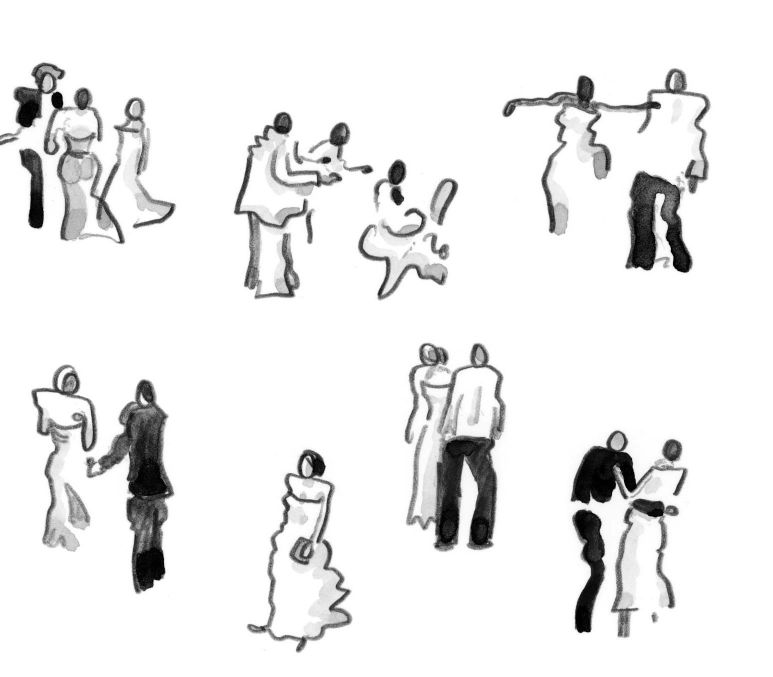 are experiencing problems with engineeringâhigh-heel breakdowns, spaghetti-strap malfunctionsâand heading to the bathroom for repairs.
are experiencing problems with engineeringâhigh-heel breakdowns, spaghetti-strap malfunctionsâand heading to the bathroom for repairs.

Other books
Hot Six by Janet Evanovich
Playing Beatie Bow by Ruth Park
Keep Me Still by Caisey Quinn
Angel at Dawn by Emma Holly
If You Only Knew by M. William Phelps
Bare Facts by Katherine Garbera
The Better Mother by Jen Sookfong Lee
Her Dragon's Fire by Julia Mills
Ice Dreams Part 2 by Melissa Johns